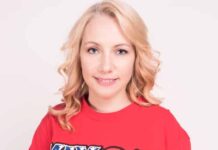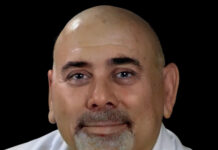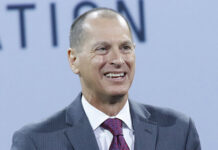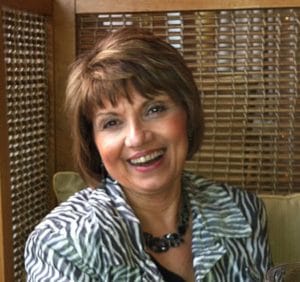
Cheri Preston is a multiple Murrow and Gracie Award-winning ABC Radio News anchor and correspondent. She has been behind the microphone for some of the past decade’s biggest stories, including the Iraq invasion, Superstorm Sandy, the capture of the Boston Marathon bomber, and the Sandy Hook shootings.
A passionate professional, Cheri reflects on her career and the impact of women in the newsroom, and reiterates the importance of role models and of mentoring younger colleagues, women and men, who aspire to advance through the industry ranks. Those who have “made it” owe it to the next generation, and to radio, to heed that advice.
What drew you to news?
I started college wanting to be a music teacher, but midway through, I knew it 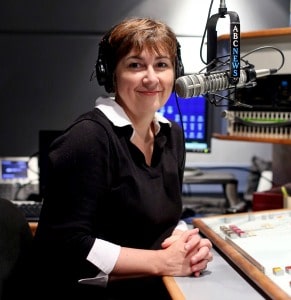 wasn’t for me. My friend Kelly Jackson — now morning show co-host at KTRS/ St. Louis — was headed to Southern Illinois University, Carbondale, to study broadcasting. It sounded fun. I did all kinds of things at my college station, but I loved the immediacy of delivering news and uncovering people’s stories.
wasn’t for me. My friend Kelly Jackson — now morning show co-host at KTRS/ St. Louis — was headed to Southern Illinois University, Carbondale, to study broadcasting. It sounded fun. I did all kinds of things at my college station, but I loved the immediacy of delivering news and uncovering people’s stories.
What’s the biggest difference between local and network newsrooms?newsrooms?
The main difference is the kind of stories you report. Local news is just that: local. You cover everything that affects your listeners. At networks, you still cover what’s relevant to listeners, but those listeners are all over the country.
Radio Ink’s first MIW list was released in 1991. What has been the biggest impact of women in the newsroom since then?
I think the very fact that there are more women has an impact. How many people grew up watching Diane Sawyer anchor the news? They didn’t see her as “a woman,” they saw her — and still see her — as an anchor, a correspondent, a journalist. It took her, and many others before her, to fight for that role, and that has certainly changed things. The same goes for diversity in general. It makes a huge difference in how you report stories when you realize that not everyone sees things the way you do.
From your perspective, why are there so few female PDs, and how can we open more doors to the position for women?
I’m not in programming, so it’s not really my expertise, but it seems to me the role of programmer usually comes from the on-air side, and for some reason there just aren’t as many women on air as men. There are more male talk show hosts, morning show hosts, jocks, and news correspondents. That’s changing, however, as more women talk about it and discuss it and ask out loud (rather than to themselves), “Why not me? Why can’t I host that morning show? Why aren’t I covering that story? Why shouldn’t I be the one to make decisions when it comes to programming?”
Those of us who’ve been in the business a while also have a responsibility to encourage others along the way and to mentor our younger colleagues. I talked to Sue O’Neil, operations manager at Kiss98.5 and Star102.5 in Buffalo, last year. She says pulling in talent is even more difficult now because there’s no farm team. On-air and news positions are more likely to be syndicated, and college radio is less active than it used to be. She says it’s a challenge every day, but with a supportive team behind you — men, women, whoever — things happen.
Who was the first woman in your career to influence you?
The first woman I remember hearing deliver news on-air was Catherine Johns on WLS in Chicago. I grew up in Quincy, IL, and spent time in Champaign after graduation from SIU-Carbondale. At night you could hear WLS clearly, and I would go out to my car (for better reception) to listen to her newscasts. She had such a conversational style, while still sounding in control. As if she was telling me what was going on with just the slightest smile on her face. I loved her delivery.
I owe my job at ABC, however, to one of the smartest women I’ve been lucky enough to work with, and that’s Kate O’Brian. She and Chris Berry interviewed and hired me. Between the time we started talking and when ABC actually offered me the job, I became pregnant. I was nervous calling Kate to tell her the news. Without hesitation, she said, “How exciting! We’ll make it work.” Later, Kate helped with my writing style, gave suggestions on types of stories to pursue, and, over time, promoted me.


